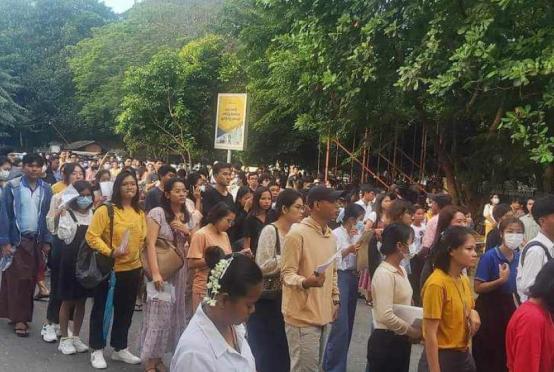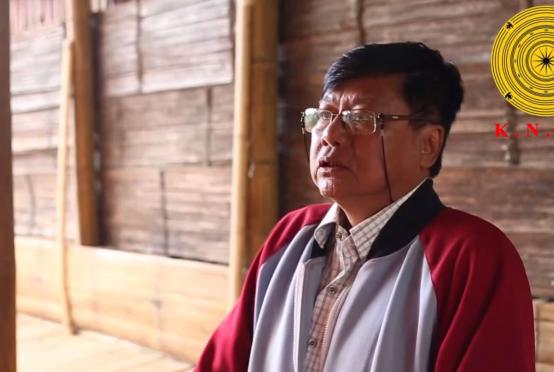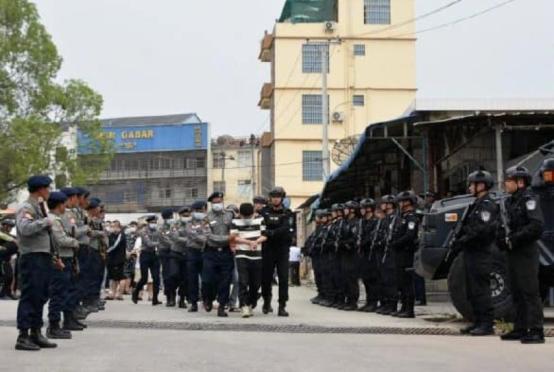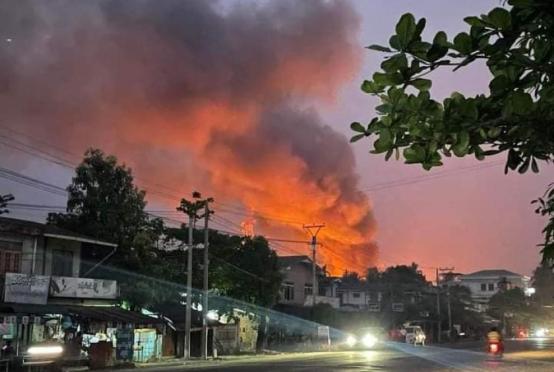by Long Kimmarita
PHNOM PENH (The Phnom Penh Post/ANN) - Ministry spokesman Heng Sour said 10 factories have already run out of raw materials as suppliers in China have closed due to Covid-19 infections.
At least 10 factories have filed for temporary suspension as the supply of raw materials from China dries up, the Ministry of Labour and Vocational Training said on Thursday. This could affect the livelihoods of as many as 3,000 workers.
Speaking during a press conference at the Office of the Council of Ministers, ministry spokesman Heng Sour said 10 factories have already run out of raw materials as suppliers in China have closed due to Covid-19 infections.
He warned that the worst was yet to come.
“In March, we could see as many as 200 factories and enterprises running out of raw materials. The worst-case scenario is that about 160,000 workers will be affected,” Sour said.
The ministry has come up with a scheme that guarantees suspended workers receive at least 60 per cent of the minimum wage.
As per the scheme, employers are required to pay suspended workers 40 per cent of the minimum wage, with the remaining 20 per cent shouldered by the government.
Besides, the ministry has prepared a series of trainings to help suspended workers access new work opportunities.
“The government is making every effort to restore relations with buyers, factories and other governments.
“We are working to end the shortage of raw materials as quickly as possible, including by negotiating with China so that it gives priority to Cambodia in the supply of raw materials,” Sour said.
He said the production standstill in China is affecting supply chains around the world, particularly in Asia. He pointed out that many factories in South Korea were suspending operations because of a shortage of raw materials.
Sour expressed hope that Cambodia would be first in line once raw material supplies are restored.
Cambodian Labour Confederation president Ath Thorn lauded the government’s strategy to deal with laid-off workers but questioned whether enough had been done to protect their livelihoods.
“I think the scheme will support workers but only in the short-term. But what would happen if the shortages last longer than expected? We cannot expect factories to continue paying 40 per cent of the minimum wage indefinitely if they are not open.
“I want to see more concrete policies to help the workers,” Thorn said.
There are 14,060 enterprises registered with the ministry. Together, they employ over 1.43 million people. Around 1,200 of those enterprises are garment factories.
Mai Chan, a factory worker from Kandal province, told The Post on Thursday that he was worried about his future. The government’s scheme is helpful but may be insufficient for many workers who have to repay loans taken out with microfinance institutions.
“I would like to ask Samdech Hun Sen to find a solution so that production in Cambodia continues as normal. Many workers are very indebted. Our only hope is to ask Samdech for help,” he said.















